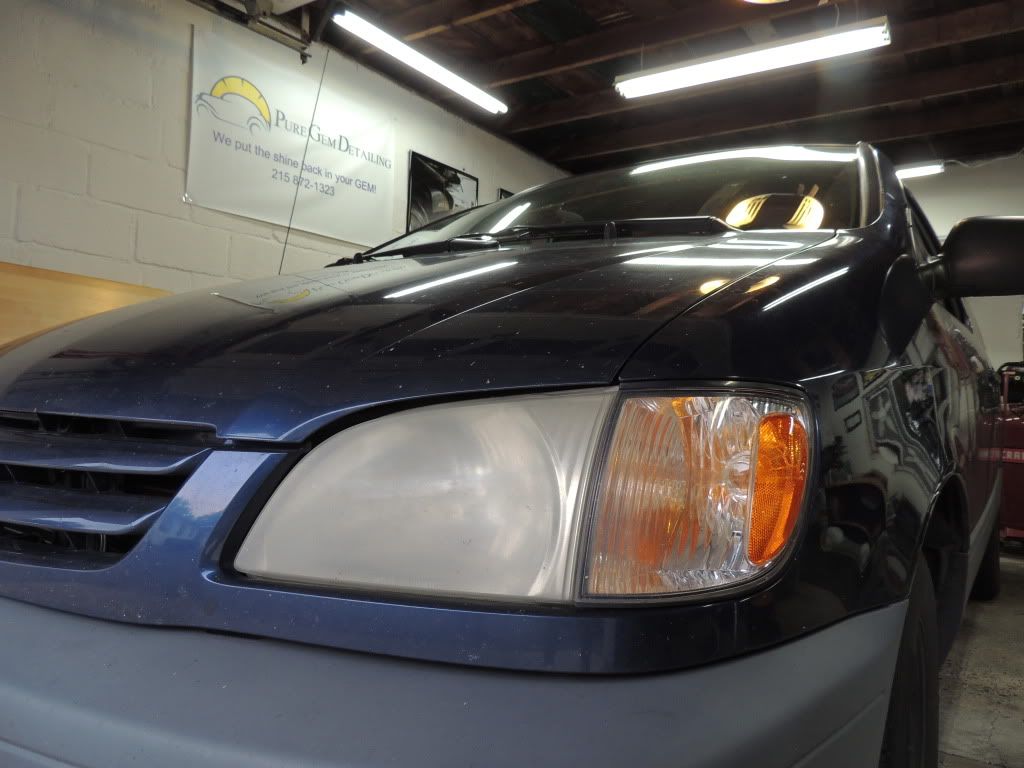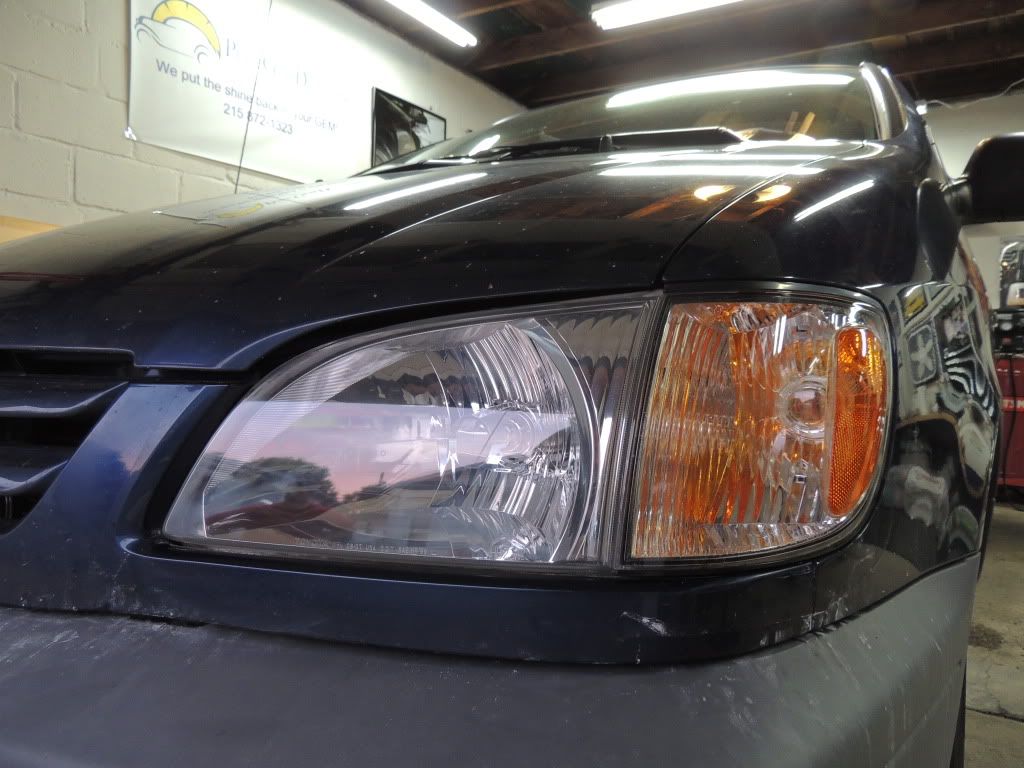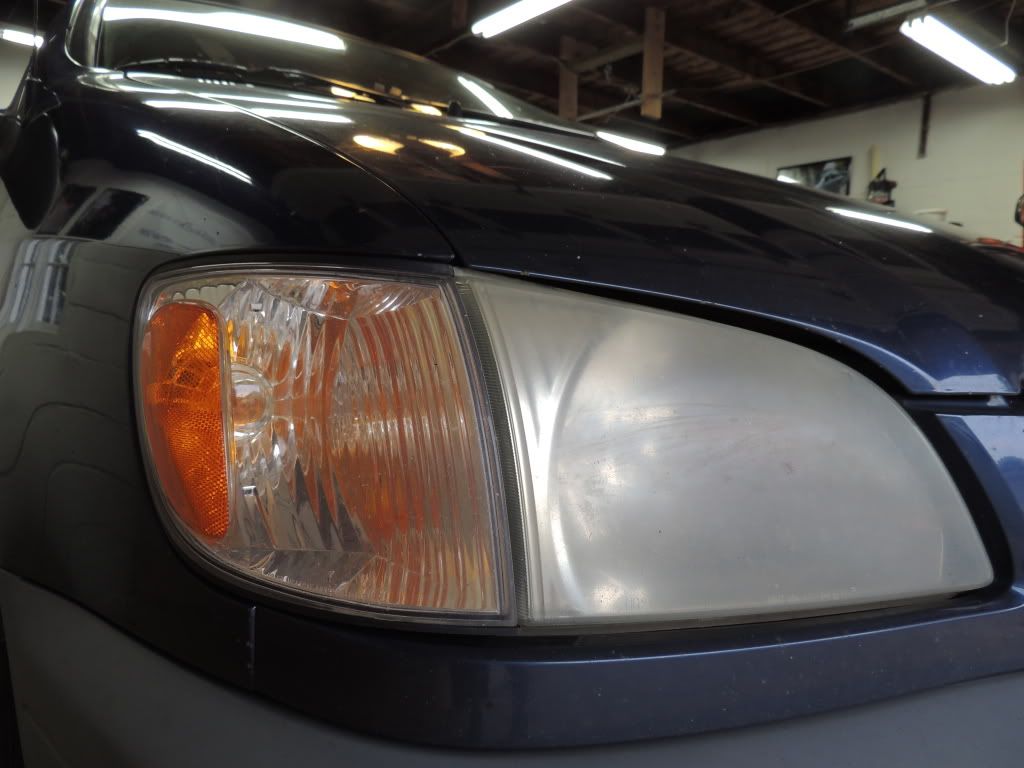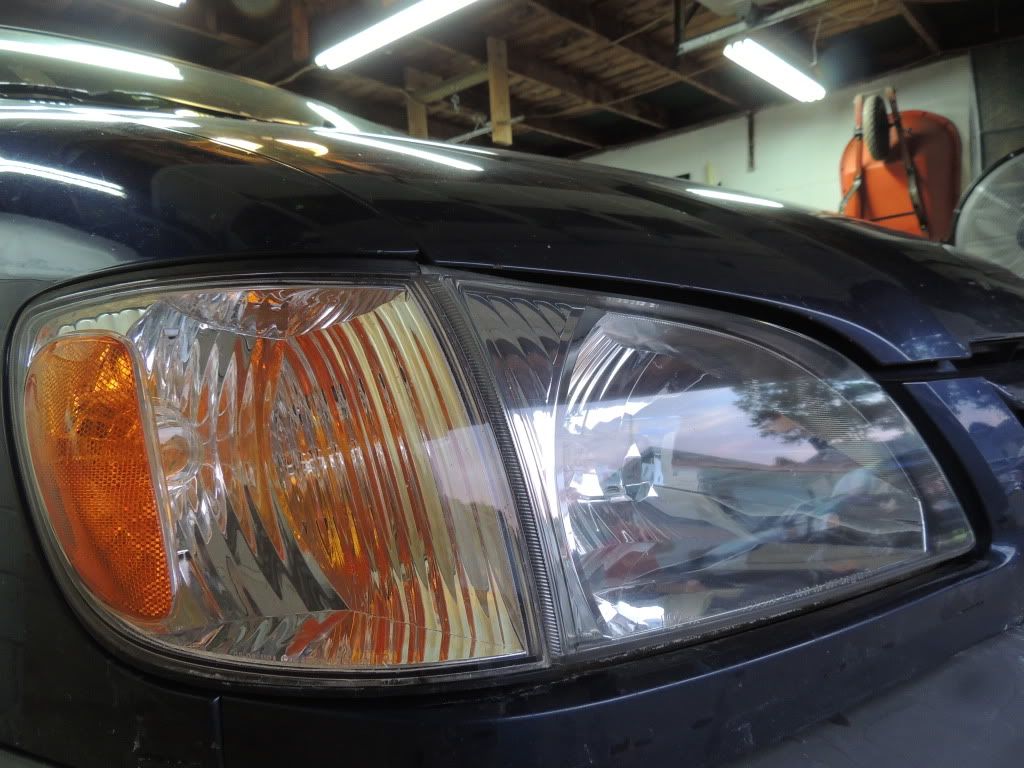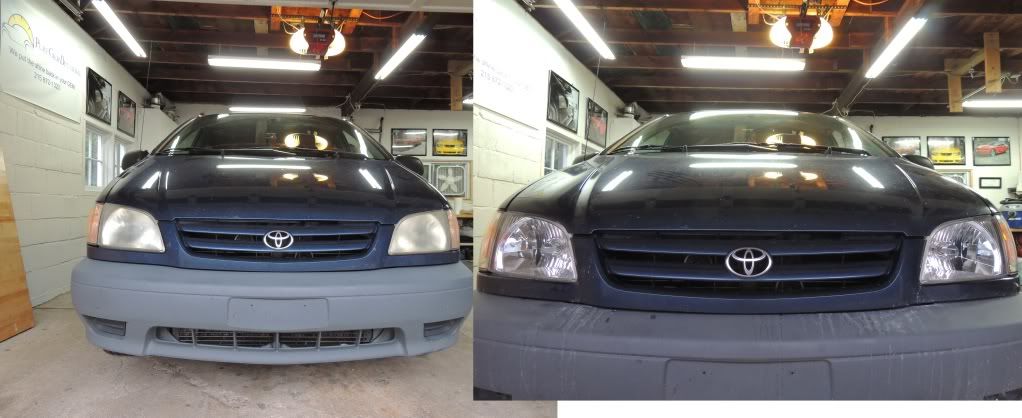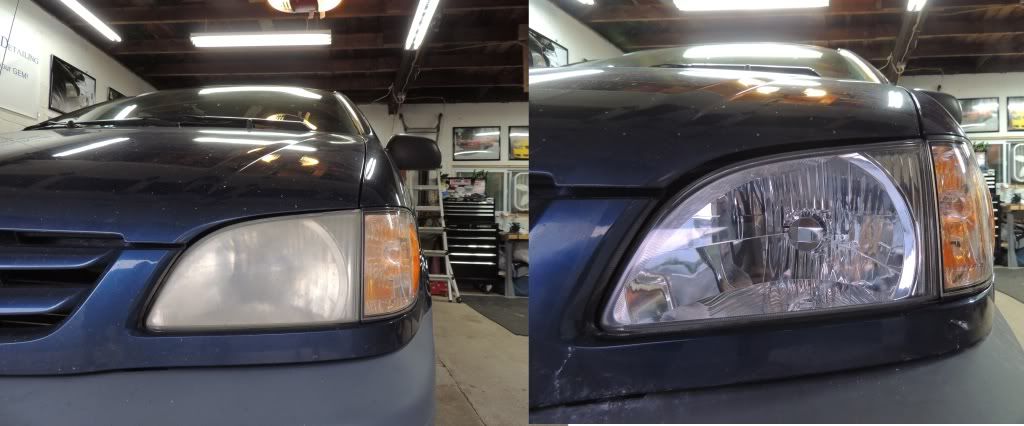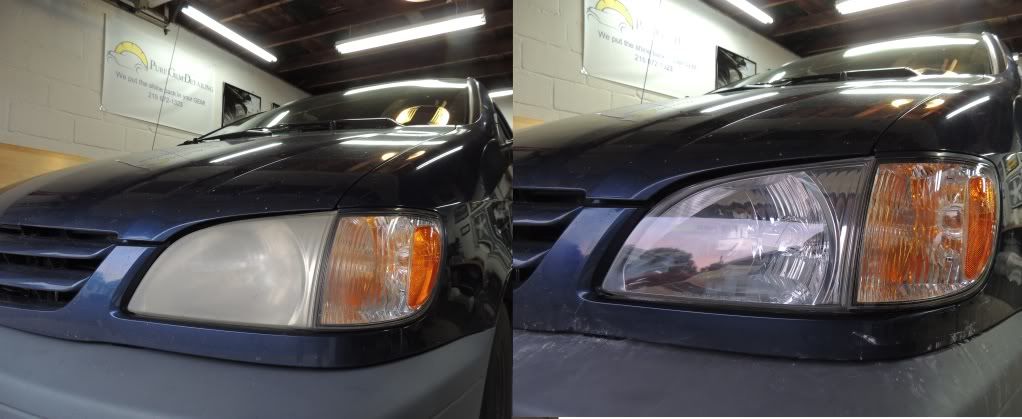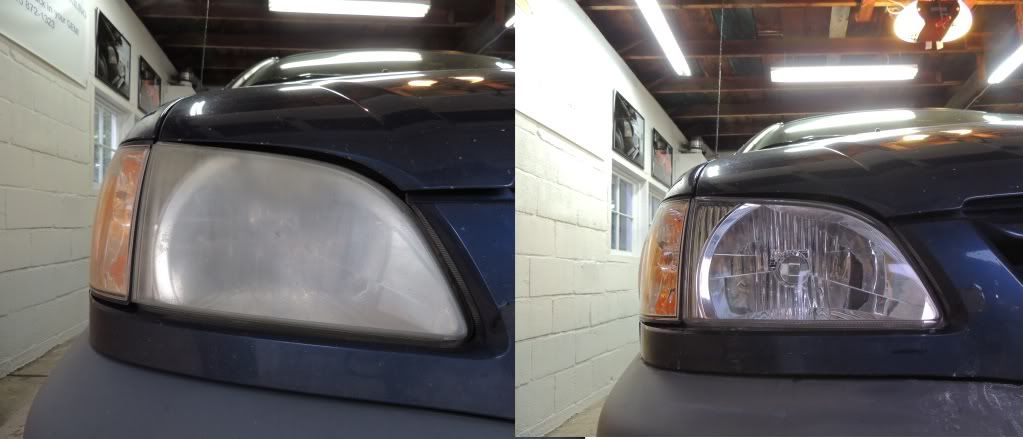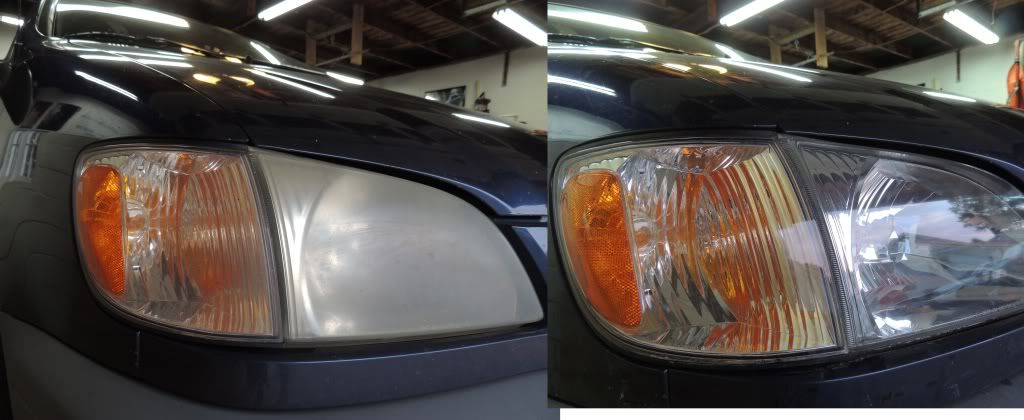I am looking for a clear coat paint with UV protect-ant in it that DOES NOT require a UV light for curing. That is my only hang up right now. I have used
Meguiars Headlight Protectant, plastic protectant, plastic sealer but I want something more long term. Not something I have to re-apply every 2-3 months.[/QUOTE]
There are a number of wipe on coatings available that cure by different methods but not requiring UV lamps, both water based and solvent based.
As a rule of thumb, coating lifetime is a function of the coating's ability to adsorb UV and the amount of material on the headlight (coating thickness). The thicker the coating, the longer it will last. Also, the coating hardness is a factor since a softer coat will wear away quicker.
For example, wax is a good UV adsorber, but because it is thin, UV adsorption is limited. Because it is not hard, it will wear off quickly with car washing, rain, etc. This is why most coatings sold retail as shine restorer, protector, sealer, etc. don't last. Some coatings such as Opticoat are great sealers, but don't adsorb UV.
If you maintained a good coating of wax on your headlights, they'd probably stay clear forever.
For a more permanent solution (although none of them are permanent) what you want is a solution that is easy to apply a thick, even film with high solids content of UV adsorbers (usually silicone, polyurethane or phenolic) and excellent sealing capability and hardness.
Minwax/mineral spirits is a solvent based recipe that many are using. It cures by first flashing (solvent evaporation) then by oxygen adsorption.
The thicker the coating, the longer it will last. Although not really designed for this application, it does provide reasonable results and is dirt cheap.
Potential problems with spar/ms is that it is very sensitive to moisture and temperature. It also sets up very quickly, possibly too quickly in some cases. It's not a real hard coat, but adequate for some low cost restorations. If you want to go this route, read the many postings related to this coating on this forum.
Pro features is that this mixture is very good at covering sanding scratches and can be usually applied to a 1500 grit sanded surface and will fill in the scratches well.
Another feature is that it is easy to customize the mixture to meet current weather. If it's hot and/or dry, increase the mineral spirits percentage to retard the setting up. Try maybe 60% spar, 40% ms. This will retard setup, but will also apply a thinner coat. Taken to extremes, you can get runs and drips.
Theoretically, you would get the best performance from using spar at 100%, but it would be difficult or impossible to apply and would setup too quickly.
Another feature of spar/ms is that is so cheap that when you apply it, and you don't like it, you can simply wipe it off with mineral spirits and re-apply as long as you do it quickly.
This coating is very sensitive to moisture and you must be careful when applying. Scrub the headlight with 100% alcohol before applying. Denatured is fine (Home Depot). Don't use rubbing alcohol (30% water) or anything less than 100%. Make sure everything coming in contact with the spar/headlight is dry.
Many restorers go beyond 1500 grit before applying spar, and some even use compounds or other patent solutions. I don't recommend this because you don't want to use anything that might interfere with the spar. Also, the rougher the surface, the greater the surface area and the greater the adhesion between spar and polycarbonate.
Other solvent based coatings (1k and 2k) are similar to the spar method with the following exceptions:
Most have higher solids content than spar/ms.
Higher grade UV adsorbers, such as phenolic resin.
Specifically formulated to adhere to polycarbonate.
Better self-leveling capability on vertical surfaces.
Usually provides a thicker coating than most any other type of coating.
Typical lifetime 2 years vs. 1 year for spar.
Unfortunately, these solutions are expensive to manufacture (phenolic based UV adsorbers are $450 per gallon) and expensive to buy. I don't know of any kit containing a coating like this, probably since no one would buy it due to costs. For people restoring many headlights the cost is probably less than a dollar per headlight, but you have to buy $50-150's worth.
Most also cure by solvent evaporation and oxygen adsorption, but have better working characteristics such as working time and shorter drying time. These coatings usually have a golden tint to them and is quite pleasing to most customers.
There are also water borne headlight coatings (usually 2K) that cure by chemical reaction between the actual coating and hardener. Think fiberglass resin. Same chemical reaction but not the same material). You mix the coating with the hardener and coat. Curing is very quick, usually under 3-4 minutes. These coatings are usually quite thin and I recommend at least 2 coats for a long lifetime. Once this coating cures, you can't even remove it with a screwdriver (we've tried).
Pot life is typically 30-60 minutes and working time sufficient for easy application.
The downside is cost. Typical cost is $10-20/oz., but cost per headlight is probably $1 to $2/ headlight. Typical lifetime is probably 2-3 years.
On the flip side, since they are water based, they can be shipped anywhere including overseas. Solvent based cannot be shipped by air. They also have long shelf life.
There are many other coatings specifically developed for headlight restoration, but either require spraying and/or UV curing. Coatings that require UV to cure will cure just as well in sunlight as well as under UV lamps.
Some of the disadvantages of these types of coatings is that if they're sprayed, you need to tape and mask the vehicle for over spray. They are also expensive ($40-60 for 12 oz. spray can) and inefficient.
A 12 oz. can is 7 oz. product and 5 oz. propellant and transfer efficiency of spraying is about 50% so you end up with about 3 1/2 oz. on the headlight. My experience with these coatings is that some are very good, but thin and need multiple coats for long lifetime. When you factor in the extra labor costs of taping and masking, plus the high costs and short lifetime of required UV lamps (unless using sunlight) they get expensive. Also difficult to use in the field due to wind, over spray, etc.
A little research on the internet will easily turn up most of these coatings. When searching for a coating (other than spar/ms) keep these things in mind:
Most everybody fibs. They may claim 1 oz. will do x number of cars. I'd cut that number in half.
If you're new to the business, take a hard look at some vendor's estimates about how long it will take you to restore a headlight (multiply by 2) and how much you can charge (cut in half).
Also, you don't have to buy anyone's "kit". Restoring headlights is not complicated. Remove the old coating, apply a new one.
ray6




